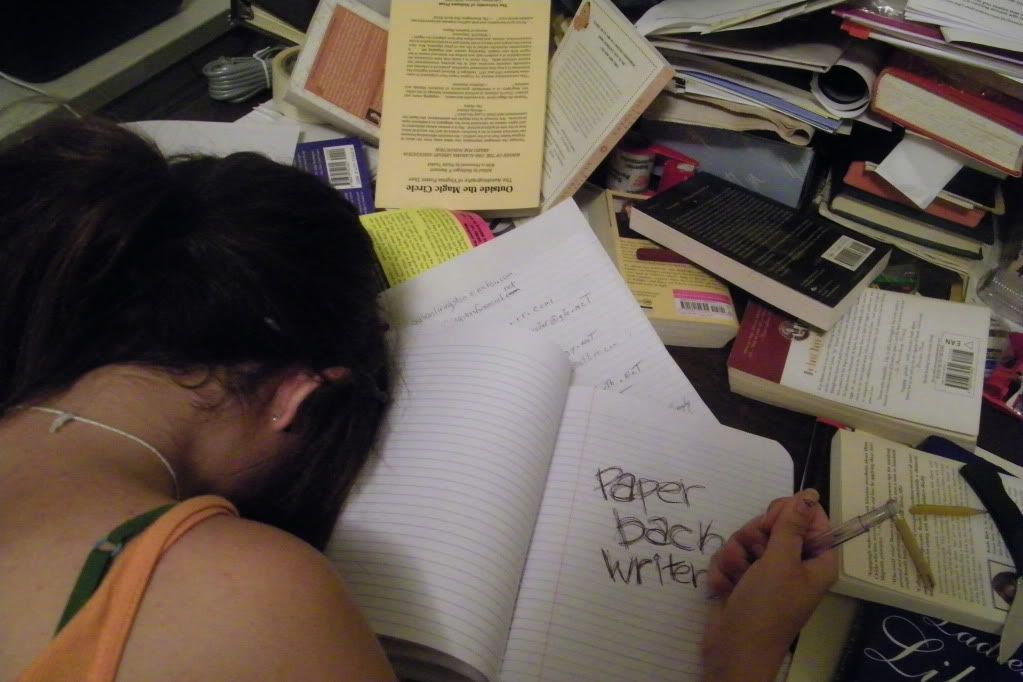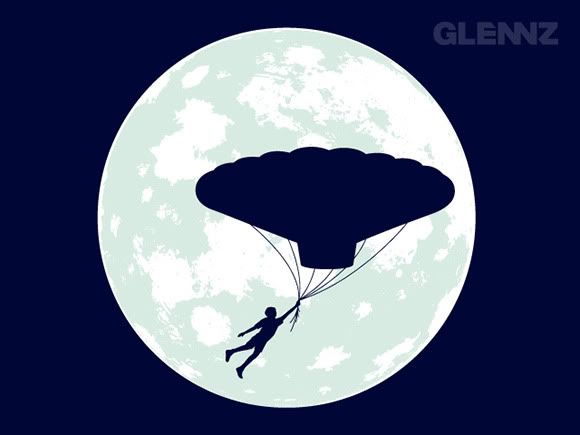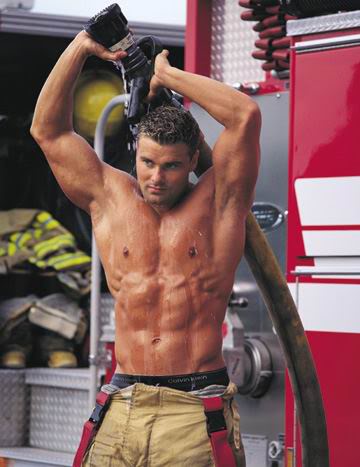Check out Rachelle Gardner's Blog and tell her your 12th step in -- "How to Become a Better Writer: 11 Completely Non-Writing-Related Ideas
1. Be creative any way you can. Cook new recipes. Paint a picture. Design a garden. Compose a song. Build something with Legos. Organize the garage.
2. Pay attention. Observe the mannerisms of people around you. Listen t...o how they speak. Marvel at the way they're dressed. Notice their shoes and their posture and the look in their eye...."
Tuesday, December 1, 2009
The Written Word - Developing Ideas
 "It seems to me that those songs that have been any good, I have nothing much to do with the writing of them. The words have just crawled down my sleeve and come out on the page." -Joan Baez
"It seems to me that those songs that have been any good, I have nothing much to do with the writing of them. The words have just crawled down my sleeve and come out on the page." -Joan BaezMost writers, no doubt, understand what Ms. Baez means when she describes words that so naturally crawl onto the page. But, seriously, these words don’t just appear from thin air. Not for a song writer nor any other kind of writer. It comes from an inspired -- idea. The source of which might be anchored in life's experiences, dreams, or from the plain ole written word (see reading.).
Life’s experiences are a good source of ideas, but how many of us are at once a doctor, lawyer, or scientist? How many have walked on the moon, flown fighters in combat, thrashed about in a hurricane, or explored an ocean floor for ancient treasure? How many have personally witnessed epic events in humanity's past that have forever changed the course of history? Ooh, then there are those experiences of oppression, torture, and murder… Few of us will draw ideas from real life, personal experiences such as these. Least, I hope not.
 But we HAVE experienced nearly all of these things, haven’t we...? Vicariously, from a safe and secure distance, by way of literature, theatre, television, blissful dreams, or horrid nightmares? So experiences aren’t limited to REAL life for writers who are naturally blessed with hyperactive imaginations. Hmm ... mining for story ideas is just another reason to sustain the discipline (or is it a voracious appetite) for reading, don’t you think? A discipline of reading any and everything, not just fiction, but also nonfiction. It exercises the imagination and helps create fertile ground for new inspiration.
But we HAVE experienced nearly all of these things, haven’t we...? Vicariously, from a safe and secure distance, by way of literature, theatre, television, blissful dreams, or horrid nightmares? So experiences aren’t limited to REAL life for writers who are naturally blessed with hyperactive imaginations. Hmm ... mining for story ideas is just another reason to sustain the discipline (or is it a voracious appetite) for reading, don’t you think? A discipline of reading any and everything, not just fiction, but also nonfiction. It exercises the imagination and helps create fertile ground for new inspiration.For Joan Baez, I'm sure the words flow naturally for all the reasons above. She’s a woman whose passionate about the environment, human rights, and nonviolence (both domestic and civic). She reads, she researches, she lives, she dreams. And from all these things she creats lyrical stories that seem, to her, naturally spun. So as aspiring writers, we have to appreciate that some passion and preparation is needed on our part before we also experience the same kind of free flowing creativity that Joan Baez describes... Where to begin?
Compelling stories usually begin with a compelling idea, but where do we mine these things?
Sharpen Your Awareness.
Ideas may come from any of the sources listed above. Or you might find inspiration in life changing events – yours and others. Scour the world around you for headlines that evoke passion, fear, adoration, or loathing. And don’t discount your dreams (waking or sleeping). But even great ideas for a novel are often fleeting so, as a new writer, start now. Organize!
Most ideas happen spontaneously. Jot them down whenever and wherever you are. Write them immediately. keep a writing journal or a notepad handy for this purpose. If necessary use a cocktail napkin, a receipt, the palm of your hand … anything. All creative ideas must be written. Though it doesn’t stop there.
- Flesh out the details
As soon as possible, gather as many details as you can. How did the idea come to spark your imagination? What was the setting? The scene? Describe what happened. When? Why? Convert these things into words. What are the specifics – Day, night, city street, or desolate wilderness?
- Develop the idea
Ideas don’t often develop themselves. And as a new writer, you shouldn’t expect this seemingly simple phase of your story to happen quickly. It has to evolve. An idea has to be explored, researched, and nurtured to full potential.
Begin by expanding on the idea. Write your own personal perceptions of the people and place that inspired it. What makes the event unique – primary characters, distinctive features, flaws, or attributes. What are these characters fighting for, what stands in their way, what would you imagine is the ultimate resolution? Project yourself into the story. How did it affect you? You have your own capacity to feel, to experience the emotion. It’s what makes your voice and style different from every other author.
- Research the idea
You’ve probably heard the adage – Write What You Know. Good advice, but how many interpret this in the wrong way? No… It doesn’t mean you should only write about the things you’ve experienced. It means you should write about things that intrigue – ideas that compel you to get into the books or log onto the internet. If you do the research, then you are writing about “what you know.” But for a good head start as a new writer, consider writing in the genre that you most enjoy reading.
Condense the idea into a Theme
Form the evolving idea developed above, write its theme? Theme -- a one-line explanation of your story. It's the underlying meaning of the story. write it on a paste-it note and stick it to the computer.
Example: Trappings of fame and fortune never comes without risk.
Example: Trappings of fame and fortune never comes without risk.
Now Expand it into a short summary
Turn the idea for your story into an imaginative vision of what it might become. Who are the primary characters? What's their goal, motivation, conflict? What's the climax and how are loose ends strung together in the conclusion.
Example: Exhilarated, Jack and Diane feel the ship rise as they release the last tether holding the high-tech, helium-filled saucer to the earth. With the economy in the dumps, mortgages in default, and jobs transferring out of town -- fame and fortune for the first couple to circumnavigate the globe is their only chance to keep from being separated forever. The only problem is Jack and Diane are only ten, and the raging tropical storm off Corpus Christie’s shores is taking them further out to sea. No problem for the son of a brilliant engineer who’s played all the simulations on his dad’s computers; and a talented gymnyst whose impressive list of identities and worldwide connections on facebook will help confound both friendly and hostile intervention in a global trek that will unite a world that spends every waking hour glued to CNN.
Example: Exhilarated, Jack and Diane feel the ship rise as they release the last tether holding the high-tech, helium-filled saucer to the earth. With the economy in the dumps, mortgages in default, and jobs transferring out of town -- fame and fortune for the first couple to circumnavigate the globe is their only chance to keep from being separated forever. The only problem is Jack and Diane are only ten, and the raging tropical storm off Corpus Christie’s shores is taking them further out to sea. No problem for the son of a brilliant engineer who’s played all the simulations on his dad’s computers; and a talented gymnyst whose impressive list of identities and worldwide connections on facebook will help confound both friendly and hostile intervention in a global trek that will unite a world that spends every waking hour glued to CNN.
Save your work
Save your work in a foulder on your computer and/or in a desk drawer. You might have gathered several ideas before beginning work on your first manuscript, but it doesn’t mean you’re done with the hunt for compelling ideas. Keep an eye on the market place -- what’s hot and what’s not. Stay vigilant. Always look for new ideas. If you don't write the story you've stumbled across, then eventually ... someone else will.
Tuesday, November 24, 2009
Before the First Written Word -- Read, Read, Read!
More than half the adult population in America say they believe they have at least one good book in them. No doubt, at least that many have been tempted by the dream of writing a great romance, historical, mystery, or perhaps a thriller. So … let’s say someone approached you. They ask -- What does it take to become a writer?
How would you respond?
Personally, I’m likely to answer that question with one or two of my own (don’t you hate people like me). The first – What do you read? And, probably, the most important one– How much do you read? The reason for these questions should be obvious. Inspiration.
Without real inspiration, the probability of a new writer realizing the dream isn't very good. If you look into your own life, on any scale, chances are you’ve experienced this very thing. From your first pair of skates to the challenge of a double black diamond ski trail, you’ve probably found your inspiration by watching someone excel at their craft. Then, with inspiration, you immersed yourself into the nuts-n-bolts of it, until you also experienced the same exhilaration and pride in finding your own style and level of excellence.
My writing partners, Jenn, Candi, Marie-Claude and I, have all experienced that kind of exhilaration and pride as we strive to refine our skills, our voices, and our writing styles. It takes maturity and perseverance. We’ve certainly taken our spills and suffered the kind of bruising that only makes the taste of small victories sweeter by contrast. But we all have something in common that pushes us forward. The admiration of those who excel at this craft. Our inspiration. The written word. We READ, READ, READ...
So -- Before The First Written Word -- you’re assignment is to read. Not a bad gig, huh? There are no notes. No exams. Just read for the pleasure of it, while making a conscious effort to decipher, for yourself, the author’s rhyme and reason.
Ask yourself a few questions along the way. Try to describe, in your own thoughts, the how and the why of your answers.
People around you tend to telegraph thoughts and emotion to the surface. What do you see in the precise shape of their mouth, the eyes, the posture? The selection and tone of their words? What makes the rhythem and beat of their dialogue distinctive from another woman or man. What message do they convey by the way they dress? Can you precisely define confidence, shyness, weakness and strength by their telling characteristics. What traits make someone appear a leader, follower, or a drifter? Start now. Exercising skills that will soon have names, while, at the same time, planting the seeds of imagination for stories to come – your muse.
Lastly, but a most important discipline in writing – practice time management. No excuses, you must be disciplined enough to dedicate time to the craft. Both reading and writing are perishable skills. It’s the same with the muscles of your body, which will certainly atrophy with lack of use. The longer you stay away the craft, the less fit you'll become. The more you exercise, however, the stronger and more balanced you'll be. Start with your reading. Commit yourself to manageable hours each day. There’s nothing sexier that a man or woman reading a novel. Well, almost…
Happy Thanksgiving, all!
--John
"I'd always loved to read - and come from a family of readers
- but I never thought about writing as a career." --Nora Roberts
Personally, I’m likely to answer that question with one or two of my own (don’t you hate people like me). The first – What do you read? And, probably, the most important one– How much do you read? The reason for these questions should be obvious. Inspiration.
“Read, read, read. Read everything - trash, classics, good and bad, and see how they do it.
Just like a carpenter who works as an apprentice and studies the master.
Read! You'll absorb it. Then write.” --William Faulkner
Without real inspiration, the probability of a new writer realizing the dream isn't very good. If you look into your own life, on any scale, chances are you’ve experienced this very thing. From your first pair of skates to the challenge of a double black diamond ski trail, you’ve probably found your inspiration by watching someone excel at their craft. Then, with inspiration, you immersed yourself into the nuts-n-bolts of it, until you also experienced the same exhilaration and pride in finding your own style and level of excellence.
"I have never thought of myself as a good writer.
Anyone who wants reassurance of that should read one of my first drafts.
But I'm one of the world's great rewriters." --James A. Michener
My writing partners, Jenn, Candi, Marie-Claude and I, have all experienced that kind of exhilaration and pride as we strive to refine our skills, our voices, and our writing styles. It takes maturity and perseverance. We’ve certainly taken our spills and suffered the kind of bruising that only makes the taste of small victories sweeter by contrast. But we all have something in common that pushes us forward. The admiration of those who excel at this craft. Our inspiration. The written word. We READ, READ, READ...
So -- Before The First Written Word -- you’re assignment is to read. Not a bad gig, huh? There are no notes. No exams. Just read for the pleasure of it, while making a conscious effort to decipher, for yourself, the author’s rhyme and reason.
"It's hard for me to believe that people who read very little - or not at all in some cases
- should presume to write and expect people to like what they have written.
Can I be blunt on this subject?
If you don't have time to read, you don't have the time - or the tools - to write. Simple as that."
--Stephen King
Ask yourself a few questions along the way. Try to describe, in your own thoughts, the how and the why of your answers.
- How many words, paragraphs, or pages did it take for the story to grab you and pull you in?
- How clear were the visuals in the world the author has created?
- What made you want to keep turning pages after that last chapter?
- What was it about the next that pulled you in?
- Can you summarize conflict, what's at stake, the goal of the characters?
- What made the characters and dialogue real for you?
- Can you sense their emotion – how?
- Can you anticipate pinnacle points in the story? Were you surprised by a turning point? Can you find the clues that lead to these outcomes?
- What makes the story logical (or contrived)? Does the conclusion feel complete or unsatisfying – why?
"I want story, wit, music, wryness, color, and a sense of reality in what I read,
and I try to get it in what I write." --John D. MacDonald
People around you tend to telegraph thoughts and emotion to the surface. What do you see in the precise shape of their mouth, the eyes, the posture? The selection and tone of their words? What makes the rhythem and beat of their dialogue distinctive from another woman or man. What message do they convey by the way they dress? Can you precisely define confidence, shyness, weakness and strength by their telling characteristics. What traits make someone appear a leader, follower, or a drifter? Start now. Exercising skills that will soon have names, while, at the same time, planting the seeds of imagination for stories to come – your muse.
Lastly, but a most important discipline in writing – practice time management. No excuses, you must be disciplined enough to dedicate time to the craft. Both reading and writing are perishable skills. It’s the same with the muscles of your body, which will certainly atrophy with lack of use. The longer you stay away the craft, the less fit you'll become. The more you exercise, however, the stronger and more balanced you'll be. Start with your reading. Commit yourself to manageable hours each day. There’s nothing sexier that a man or woman reading a novel. Well, almost…
"No man should ever publish a book until
he has first read it to a woman." ~Van Wyck Brooks
Happy Thanksgiving, all!
--John
Monday, November 23, 2009
Unpublished? How would you feel (as an aspiring writer) if someone told you that, not one, but two of your manuscripts are in serious contention for publication. Drop by Musetracks, and Candi Wall will describe her experience and offer inspiration for all in an interview with MuseTracks, Marie-Claude Borque.
BTW: Please... vote/comment for STAY and PRIMTIVE NIGHTS by clicking on either of the names. The links will take you to the Dorchester forums!Read MoreMUSETRACKS
See Candi's complete article at: Musetracks
Subscribe to:
Posts (Atom)








